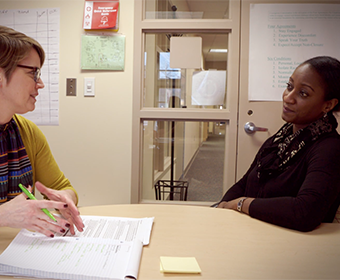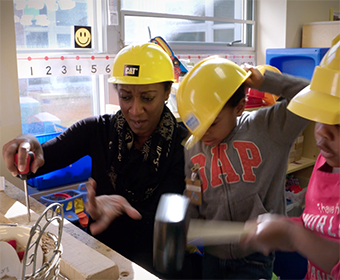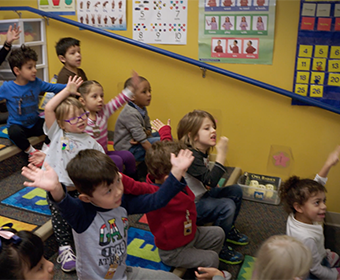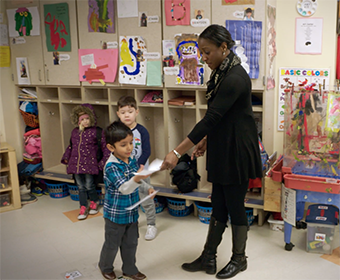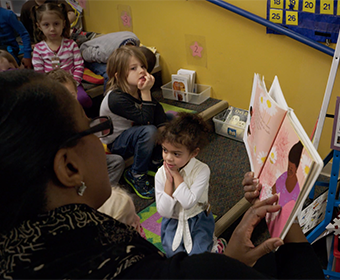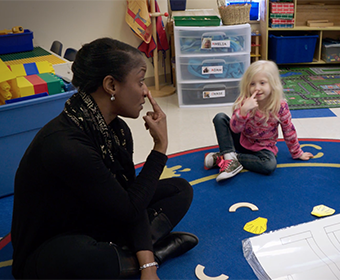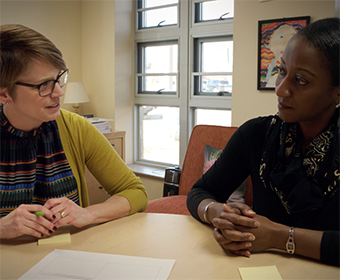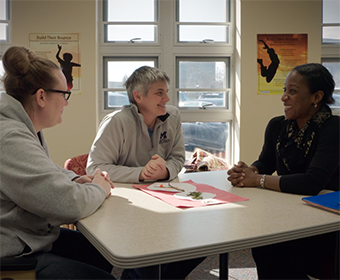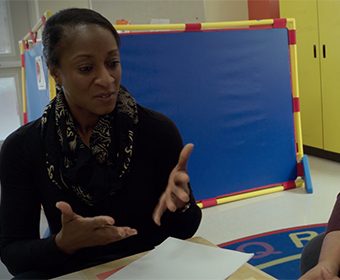Although the ability of families to participate in their child’s learning at school varies widely, it is a KEY RESPONSIBILITY in early learning for educators to provide opportunities for families to understand both the instructional program and their child’s progress. Teaching staff establish and strengthen relationships with families by 1) communicating with them about the instructional program, 2) conferring with them about individual student learning progress, and 3) inviting them to be a part of the educational process itself.
In this family-teacher conversation, (which is a follow-up to a recent parent conference), one of Sophia and June’s families share the changes that they have seen in their child since coming to the center at age two, when he was not talking, to now at age four being on target to go into a regular Kindergarten classroom without additional learning supports. Special family learning supports that are emphasized in the conversation include:
- Weekly Family Letter with Family Feedback Form (both in English and Spanish)
- Monthly Family “Look Aheads” Newsletter
- Welcome to Our Classroom Letter from Ms Sophia and Ms June
- Invitation to Family Involvement Events
- Family Communication Travel Folder
PLUS take a look at how Sophia keeps track of family feedback week-by-week:
- Example of Sophia’s Weekly Journaling of Family Feedback from newsletter/notes
(4d: Communicating with Families: Students regularly develop materials to inform their families about the instructional program; Students contribute to regular and ongoing projects designed to engage families in the learning process; All of the teacher’s communications are highly sensitive to families’ cultural norms; ALL Distinguished)

